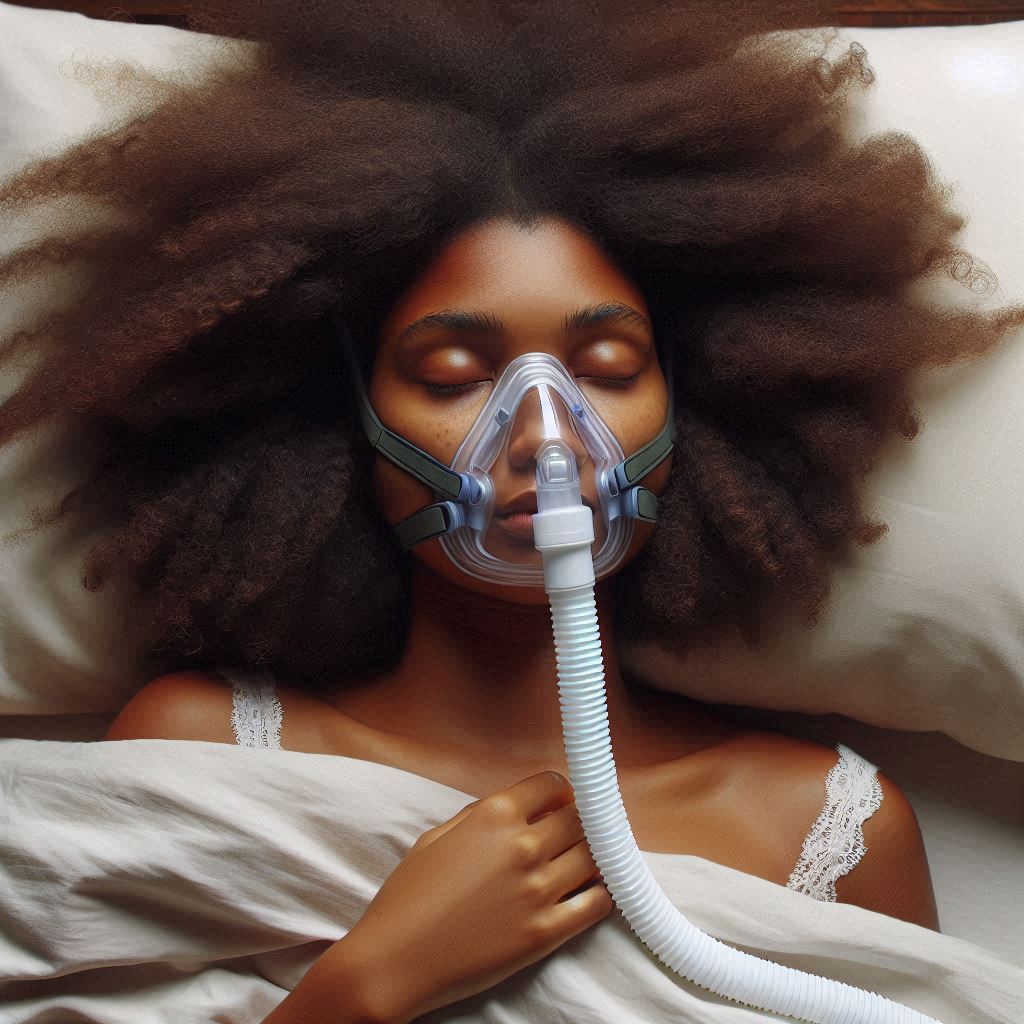
by Tara E. l March 20, 2025
Sleep apnea and pregnancy are a combination that poses serious health risks, especially for Black women. Studies show that pregnant Black women are more likely to develop obstructive sleep apnea (OSA), a condition where breathing repeatedly stops during sleep. Left untreated, sleep apnea can lead to high blood pressure, gestational diabetes, and even preterm birth.
With Black mothers already facing higher rates of maternal health complications, it’s essential to recognize the symptoms of sleep apnea and pregnancy early and take action. Let’s explore the risks, warning signs, and steps Black women can take to protect themselves and their babies.
Listen to the Podcast
Why Pregnancy Increases Sleep Apnea Risk
1. Weight Gain & Hormonal Changes
⚖️ Why It Matters: Pregnancy naturally leads to weight gain, especially around the neck, making the airway more likely to collapse during sleep.
💡 What to Do:
- Maintain a healthy pregnancy weight through balanced nutrition and moderate exercise.
- Sleep on your side to keep airways open and reduce snoring.
2. Increased Blood Volume & Swelling
💙 Why It Matters: Pregnancy increases blood volume, causing fluid retention that can narrow airways and worsen breathing problems.
💡 What to Do:
- Stay hydrated to reduce fluid buildup.
- Elevate your head while sleeping to improve airflow.
3. Higher Levels of Progesterone
🧬 Why It Matters: While progesterone helps regulate breathing, it can also relax airway muscles too much, making it easier for sleep apnea to develop.
💡 What to Do:
- Be mindful of breathing changes, especially in the second and third trimesters.
- Talk to your doctor if you notice snoring, frequent awakenings, or gasping for air.
The Risks of Sleep Apnea During Pregnancy
🚨 Untreated sleep apnea can lead to:
- Gestational hypertension & preeclampsia – High blood pressure can cause complications like preterm labor.
- Gestational diabetes – Poor sleep affects insulin regulation, increasing diabetes risk.
- Preterm birth & low birth weight – Babies born too early or too small may face long-term health challenges.
- Increased C-section rates – Sleep apnea has been linked to a higher chance of needing a C-section.
- Fetal distress – Oxygen deprivation during sleep can impact the baby’s health and development.
How to Manage Sleep Apnea While Pregnant
- Recognize the Symptoms – Snoring, waking up gasping for air, headaches, excessive daytime fatigue, and morning dry mouth can all be signs of sleep apnea.
- Get Tested for Sleep Apnea – Ask your doctor about a home sleep apnea test or an overnight sleep study, especially if you have risk factors.
- Use CPAP Therapy if Recommended – A CPAP machine can help keep your airways open, ensuring proper oxygen flow to you and your baby.
- Make Pregnancy-Safe Lifestyle Adjustments –
- Sleep on your left side to keep oxygen levels steady.
- Avoid alcohol and sedatives that relax throat muscles.
- Use nasal strips or humidifiers to improve breathing at night.
- Advocate for Your Health – Black women often face medical bias in pregnancy care. If you feel your concerns aren’t being taken seriously, seek a second opinion or request a referral to a sleep specialist.
Final Thoughts
Sleep apnea in Black pregnant women is a serious but treatable condition. Recognizing the symptoms, getting tested, and making small lifestyle changes can help protect both mother and baby. If you or a loved one is expecting, take sleep health seriously—it could save lives. Every Black mother deserves a safe, healthy pregnancy and restful sleep.
More from Mahogany Speaks to You

Natural and Lifestyle Based Solutions to Improve Sleep Apnea
Read more…COMING SOON

The CPAP Problem: Why Black Women Struggle with Treatment
